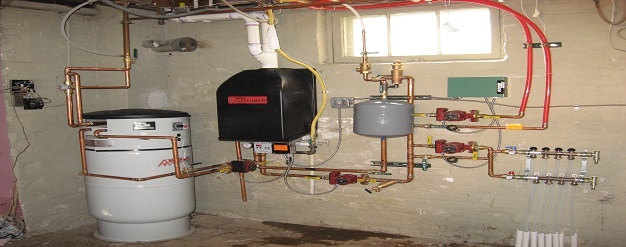Hot Water Heater Regulation Changes

By Anna Black
There are some changes coming down the pipeline for water heaters with the introduction of new North American wide efficiency requirements for electric, gas, and oil-fired storage-type water heaters. Hot water heaters are about to get MUCH more expensive, which is why it’s important that you do some research before you make your decision on which heater to get. WaterHeaterReviewsSite, for example, could give you some advice on which electric water heaters is the most recommended. Make sure you find a reliable heater, especially because they’re getting more expensive. If you are still having problems with your water heater and the pipes connecting it, you can always contact a plumber like San Diego Pipelining who can help sort out your issue.
Major efficiency increases have already been implemented by Natural Resources Canada (NRCan) in the U.S, with the same expected shortly in Canada (full roll-out by 2020). The proposed changes are part of Amendment 13 to Canada;s Energy Efficiency Regulations with considerable input from manufacturers and the Canadian Institute of Plumbing and Heating (CIPH).
Here is an overview of the current U.S. changes:
- Gas models now require additional insulation, incorporate new flue baffling technologies including flue dampers, and incorporate electronic ignition instead of a standing pilot, or have a combination of the three.
- Electric models now require more insulation along with additional insulation for piping and T&P (temperature and pressure) valves.
- Oil models now require, at the minimum, additional insulation (and potentially new combustion technology).
- Water heaters being manufactured are now larger (by approximately one to two inches in height and two inches in diameter) and more expensive (due to additional materials and shipping expense). However, many homeowners will choose to get a water heater to heat their homes due to their efficiency. You can Click here to contact a plumbing service and find out more.
In Canada, unfortunately, the impending changes are still undefined, in most provinces, with the exception of BC and Ontario.
Ontario is adopting the U.S. Department of Energy?s (DOE) changes for electric and NRCan?s for gas. The province has been asked to hold off any changes for water heaters under 208 litres (55 gallons) until October 1st, and for water heaters over 208 litres, until September 1st, 2017, and April 1st, 2018 for federal regulations. The same applies to NRCan.
BC has chosen to follow the new regulations of the Province?s Energy Efficiencies Act, which are very similar to the US standards.
Each province can choose to either accept the minimum efficiencies of NRCan or go higher:
- Gas water heaters: less than 75,000 Btu/h input (energy factor 0.75 (April 2016); 0.80 (January 1, 2020))
- Electric water heaters: Minimums have yet to be decided. It depends on whether the remaining provinces decide to follow the lead of BC or Ontario.
- Oil-fired water heaters: energy factor of .68 for units up to 105,000 Btu/h input
In addition to the uncertainty around the requirement decisions, the regulatory uncertainty has been causing headaches for manufacturers. Original decisions were promised last fall, then pushed back to February, and as of the publication of this article, are still unclear. However, it is likely worth going to Read more about your options when it comes to these heaters.
This has implications for home owners, home builders and investors. At the end of the day, water heating is going to get a more expensive overall for not only the purchase of the heater, but also the price of installation. By 2020, a $500 water heater will cost homeowners $2000 all in. Extra costs won?t likely be recouped through energy savings either unfortunately.
Anna Black first joined the REIN team in January 2015 as Research & Editorial Assistant. She has a BA in English with a Minor in Publishing from Simon Fraser University. Prior to joining REIN, Anna worked in the non-profit, recruitment advertising, and lead generation industries in an account service and marketing capacity.
{{cta(‘a2f69965-cbaf-4089-8592-d93ceeef8740’)}}




